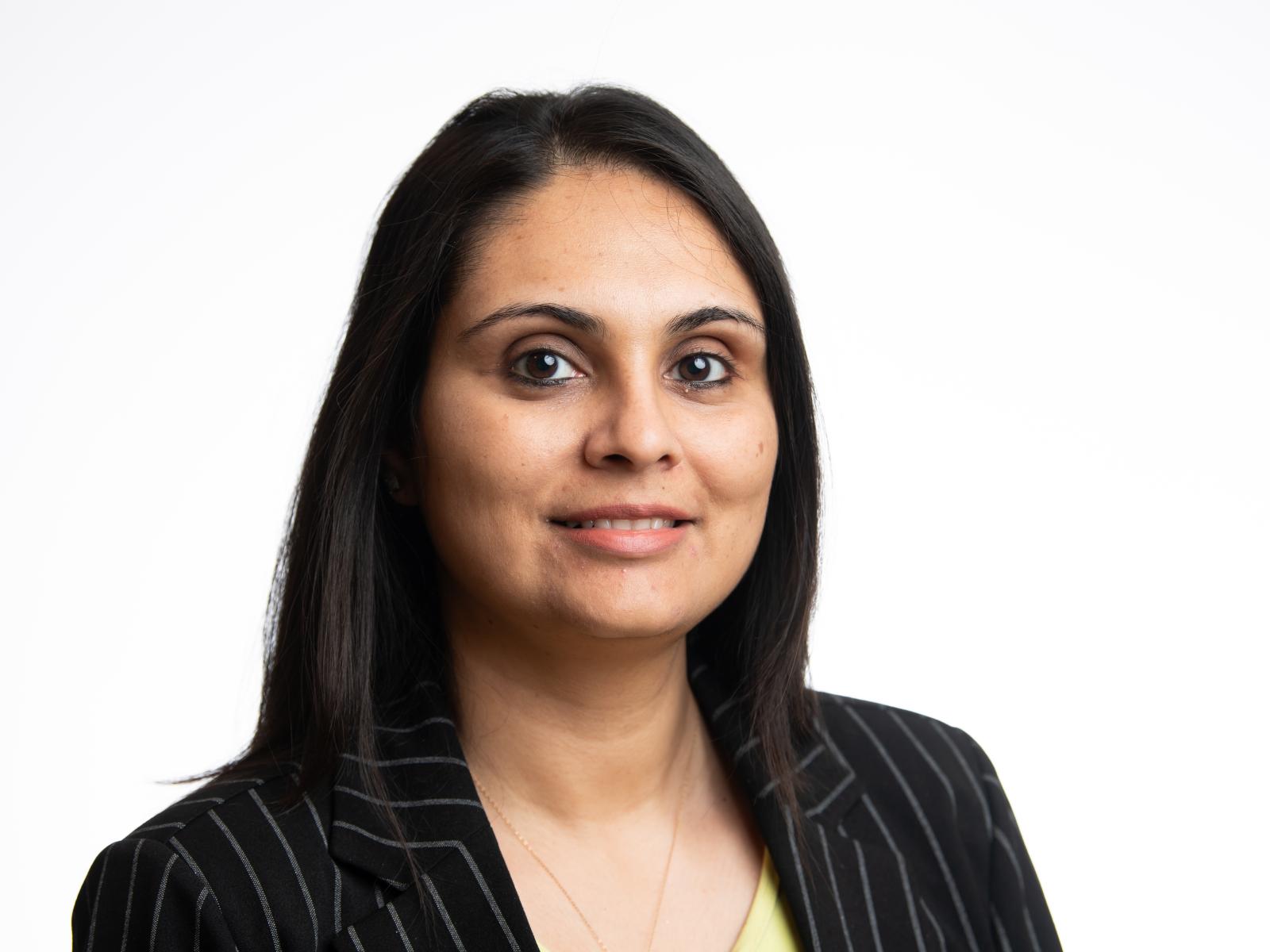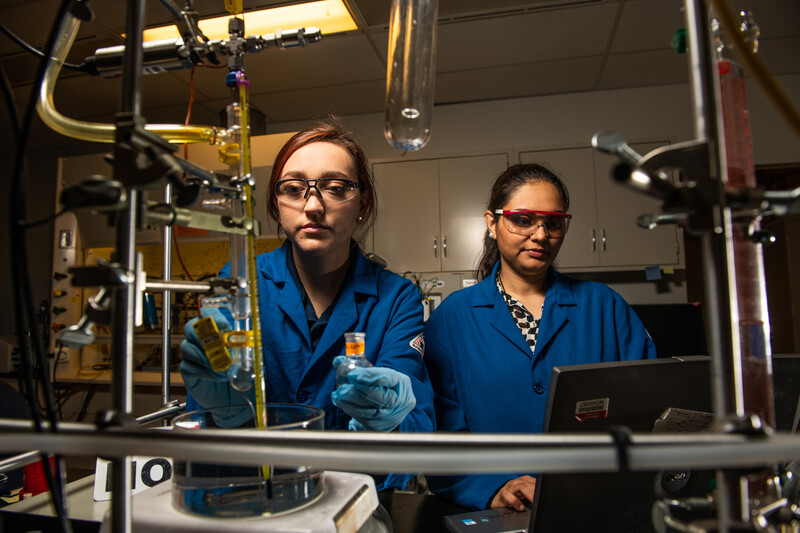American Chemical Society Recognizes Deepika Malhotra as Emerging Leader in Chemistry
PNNL chemist receives the Kavli Foundation Emerging Leader in Chemistry Award for carbon capture research

Deepika Mahlotra
(Photo by Andrea Starr | Pacific Northwest National Laboratory)
The American Chemical Society (ACS) honored Deepika Malhotra, a senior scientist at Pacific Northwest National Laboratory (PNNL), with the Kavli Foundation Emerging Leader in Chemistry Award for her remarkable achievements in carbon management research.
The award, sponsored by The Kavli Foundation, is bestowed to outstanding scientists who are within 10 years of their PhD completion or under the age of 40, and are showcasing their substantial contributions to chemistry or its interdisciplinary areas and receiving recognition with high regard from peers in the scientific community.
“My motivation as a scientist is centered on advancing carbon capture solutions, underscoring a commitment to addressing global environmental challenges,” Malhotra said. “This is a prestigious award, and I am honored to be recognized for contributing to that broader mission.”
On March 18, 2024, Malhotra will give the Fred Kavli Emerging Leader in Chemistry Lecture on “The Many Flavors of Carbon Capture Technologies” at the ACS Spring 2024 National Meeting in New Orleans, Louisiana. The lecture aligns with the conference’s theme, “The Many Flavors of Chemistry.” The presentation aims to encourage dialogue among scientists, industry professionals, and policymakers to address future challenges in carbon capture and storage and to promote sustainable practices.
“We are all talking about global efforts towards achieving a net-zero world,” said Malhotra. “The importance of this initiative is not limited to a single sector but spans across various fields and industries. The efficient capture of carbon dioxide (CO2) before it reaches the atmosphere is a big part of that equation.”

Malhotra and other researchers at PNNL are developing efficient methods for capturing CO2 from industrial facilities before it is released into the atmosphere—a crucial step to reducing greenhouse gas emissions. Her research specifically concentrates on the design, synthesis, and large-scale production of solvents that are effective in capturing CO2.
“There is a pressing need for the creation of new and more efficient systems for carbon capture. This involves research and designing technologies that can effectively capture CO2 emissions at their source, such as power plants, industrial facilities, and even directly from the air,” said Malhotra. “The aim is to develop systems that are not only effective but also scalable and adaptable to different emission sources.”
Malhotra’s ACS lecture will provide perspective on the latest advancements and prospective trajectories in carbon capture technologies. The emphasis of the talk will be on the contribution of PNNL-developed water-lean solvents to sustainable and cost-effective CO2 sequestration methods. Water-lean solvents are a significant improvement over traditional aqueous amine solutions, reducing high-energy demand and water usage associated with carbon capture.
At the ACS National Meeting, she also will be among the 2024 Outreach Volunteers of the Year awardees. That recognition is from the ACS Richland Local Section in Washington State, of which Malhotra is the immediate past chair.
Visit our event page to learn more about her lecture and other PNNL researchers presenting at the ACS Spring 2024 National Meeting.
Published: March 13, 2024